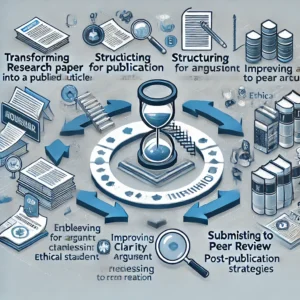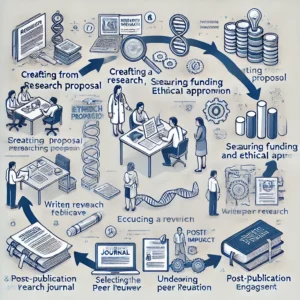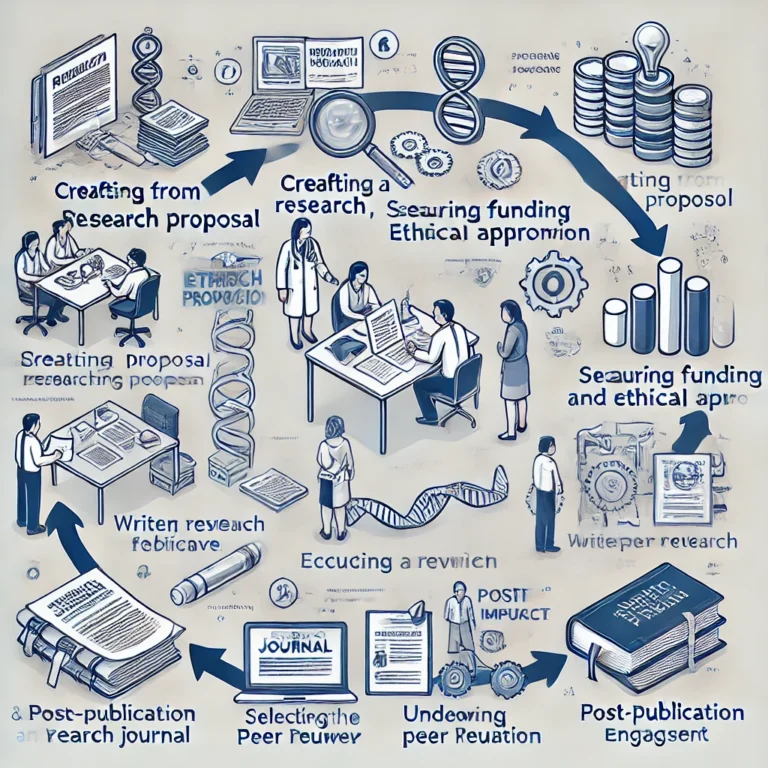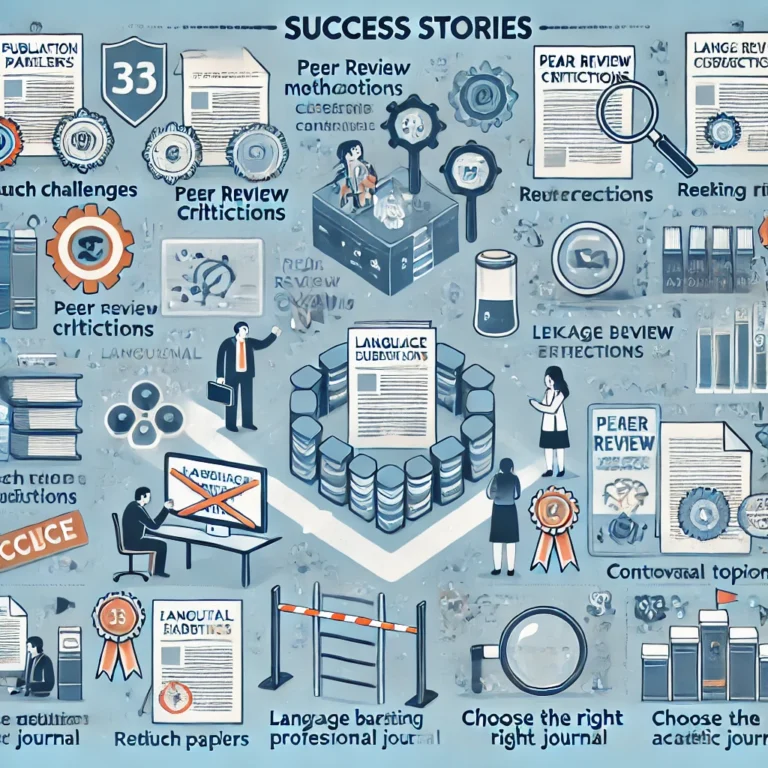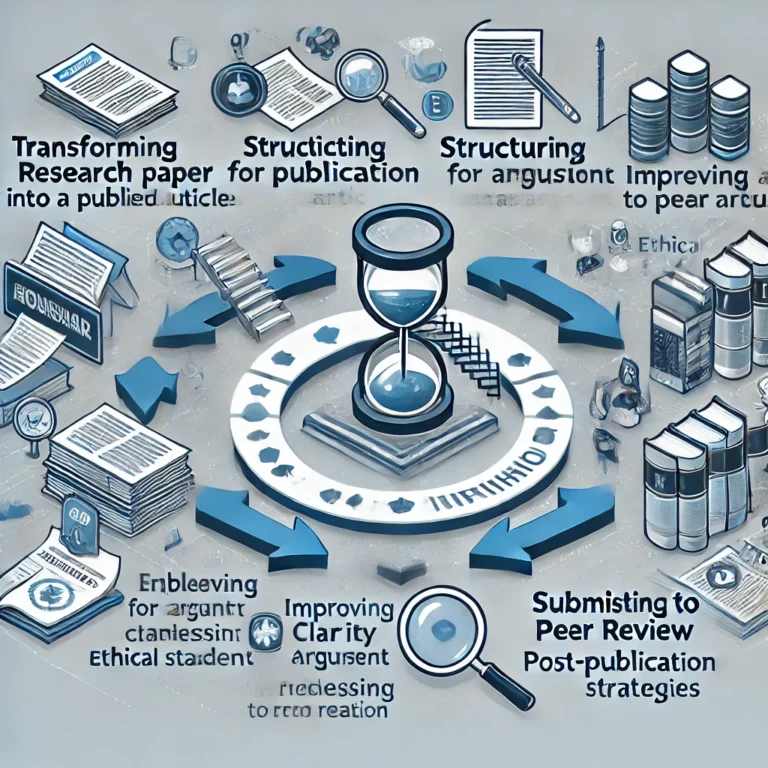A well-structured research proposal is essential for securing approval, funding, and guidance for academic research. A strong proposal outlines the research problem, methodology, and expected contributions, ensuring clarity and feasibility. This guide explores key elements for designing a robust research proposal.
1. Understanding the Purpose of a Research Proposal
A research proposal serves several crucial functions:
- Defining the Research Problem: Clearly articulates the issue to be studied.
- Establishing Objectives: Outlines the aims and scope of the research.
- Justifying the Study: Demonstrates the significance and impact of the research.
- Describing Methodology: Details the approach for data collection and analysis.
- Seeking Approval and Funding: Serves as a basis for securing institutional approval and financial support.
2. Essential Components of a Research Proposal
A high-quality research proposal typically includes the following elements:
- Title: A concise and descriptive title that reflects the research focus.
- Abstract: A brief summary highlighting the research problem, objectives, methodology, and expected outcomes.
- Introduction: Provides background information, significance, and objectives of the study.
- Literature Review: Summarizes existing research, identifies gaps, and establishes theoretical frameworks.
- Research Methodology: Details the study design, data collection methods, sampling techniques, and analysis strategies.
- Expected Results and Contributions: Explains the anticipated findings and their relevance to the field.
- Timeline: A schedule outlining key research milestones and deadlines.
- References: Lists all cited sources following a standardized referencing style.
- Budget (if applicable): Specifies costs associated with the research process.
3. Developing a Strong Research Problem and Objectives
A well-defined research problem guides the entire study. Consider these factors:
- Clarity: Ensure the problem is specific and well-articulated.
- Relevance: Address a significant issue within the field.
- Feasibility: Choose a topic manageable within the given timeframe and resources.
- Researchability: Ensure the problem can be investigated using available methods.
4. Conducting a Preliminary Literature Review
A preliminary review of existing literature helps refine research questions and methodologies. Key steps include:
- Identifying Relevant Studies: Use academic databases like Google Scholar, Scopus, and JSTOR.
- Analyzing Key Findings: Compare previous research to identify gaps and trends.
- Building a Theoretical Framework: Establish models or theories that support the research.
- Justifying the Study: Explain how the research contributes to existing knowledge.
5. Selecting the Appropriate Research Methodology
The choice of methodology determines the credibility of research findings. Consider the following:
- Quantitative Research: Suitable for measuring variables, testing hypotheses, and statistical analysis.
- Qualitative Research: Ideal for exploring experiences, behaviors, and social phenomena.
- Mixed-Methods Research: Combines both qualitative and quantitative techniques for a comprehensive approach.
- Ethical Considerations: Address issues like informed consent, data privacy, and research ethics approvals.
6. Writing a Persuasive and Coherent Proposal
To ensure clarity and coherence, follow these writing best practices:
- Use Clear and Concise Language: Avoid jargon and complex sentence structures.
- Maintain a Logical Flow: Ensure smooth transitions between sections.
- Support Claims with Evidence: Reference relevant studies and theoretical frameworks.
- Adhere to Formatting Guidelines: Follow institutional or funding agency requirements.
7. Reviewing, Editing, and Seeking Feedback
A well-polished proposal enhances approval chances. To refine your proposal:
- Proofread for Errors: Check grammar, punctuation, and consistency.
- Seek Feedback: Consult advisors, peers, or mentors for constructive criticism.
- Revise Accordingly: Make improvements based on received feedback.
Final Thoughts
Designing a robust research proposal requires careful planning, clear articulation, and thorough justification. A well-structured proposal not only secures approval but also lays a strong foundation for successful academic research. By following these key elements, researchers can effectively communicate their study’s significance and feasibility.

